Health Advice
/Health

Is it too late to get your COVID or flu shot? We asked a doctor at UK HealthCare
Health experts typically advise getting your COVID-19 and flu vaccine by the end of October. However, if you’ve missed that window, you can still get them well into the respiratory virus season and see a benefit.
Flu activity, particularly flu A, is on the rise across the U.S. this month, according to the latest data from the U.S. Centers for...Read more

Commentary: US needs immigrants to sustain the health care workforce
As Americans gather for holiday celebrations, many will quietly give thanks for the health care workers who keep their families and friends well: the ICU nurse who stabilized a grandparent, the doctor who adjusted a tricky prescription, the home health aide who ensures an aging relative can bathe and eat safely.
Will most of us notice how many ...Read more
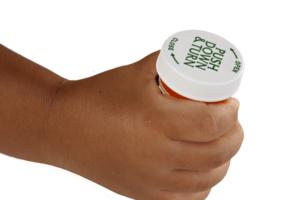
Ask the Pediatrician: Medication safety tips for families
Each year, about 50,000 children under age 5 end up in emergency departments for poisoning after swallowing medicine unintentionally.
Medications are meant to improve and save lives. But when a medicine gets into the wrong hands and is taken by a child or teen, the results can be deadly. That’s why all prescription drugs, over-the-counter ...Read more

The Minnesota mom who ignited RFK's vaccine concerns and today's MAHA movement
MINNEAPOLIS — The coastal sun was shining on Sarah Bridges, she recalled, when she decided to stage a one-person protest on Robert F. Kennedy Jr.’s porch in Hyannis Port.
The Minnesota mom would sit there — after showing up unannounced in 2005 with an 18-inch stack of documents — until the famed environmental attorney agreed to read the...Read more
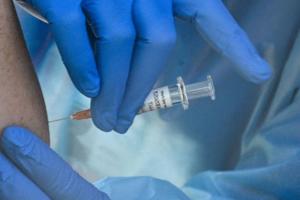
Flu season could get a lot worse in the coming weeks, experts say
NORFOLK, Va. — This flu season has been relatively mild so far but medical experts expect it to intensify in the coming weeks due to a new strain that emerged after the current vaccine’s production — though that inoculation remains the best form of protection.
Data out of the United Kingdom indicates the new strain has resulted in the ...Read more

One big beautiful bill act complicates state health care affordability efforts
As Congress debates whether to extend the temporary federal subsidies that have helped millions of Americans buy health coverage, a crucial underlying reality is sometimes overlooked: Those subsidies are merely a band-aid covering the often unaffordable cost of health care.
California, Massachusetts, Connecticut, and five other states have set ...Read more
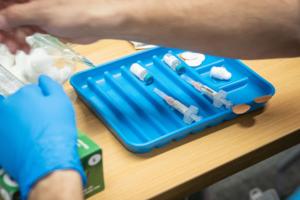
Will measles outbreak spread to Georgia? With holiday travel, it could
ATLANTA — One of the biggest measles outbreaks of the past two decades is taking place less than 200 miles from Atlanta.
More than 130 people in South Carolina have contracted the infection in recent months — almost all of them children who were unvaccinated. Public health officials in the state said travel over the Thanksgiving holiday ...Read more

1 in 500 Alaskan deaths during pandemic was from COVID-19, state reports
ANCHORAGE, Alaska — Over a roughly three-year period beginning in March 2020, 1,564 Alaskans died from COVID-19.
That's according to a new report from the Alaska Department of Health, which provides a detailed review of data on how the state fared dealing with the coronavirus between March 2020 and the end of the the federal public health ...Read more

Research shows proton beam therapy improves cancer survival, lowers side effects
Proton beam radiation therapy performed 10% better at stopping cancer of the throat compared to traditional X-ray radiation, a new study shows, with 15% fewer side effects.
“With this study, it is my personal belief that proton beam therapy is a new standard-of-care treatment for patients with oropharyngeal cancer,” said Dr. Jason Molitoris...Read more
As Congress' year ends, Rep. Kevin Kiley cites 'failure of leadership on both sides' on health care
WASHINGTON — U.S. Rep. Kevin Kiley sharply criticized Republican and Democratic House leaders Friday as Congress ended its 2025 session.
The California Republican was stymied in his effort to move a plan that would have continued enhanced health care subsidies for Affordable Care Act marketplace consumers beyond the December 31 expiration ...Read more
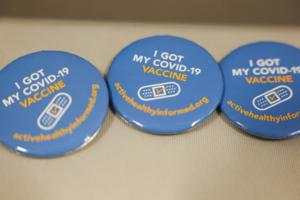
Inside the FDA's vaccine uproar
Six days after a senior FDA official sent a sweeping internal email claiming that COVID vaccines had caused the deaths of “at least 10 children,” 12 former FDA commissioners released an extraordinary warning in the Dec. 3 issue of the New England Journal of Medicine.
They wrote that the claims and policy changes in the memo from Vinay ...Read more
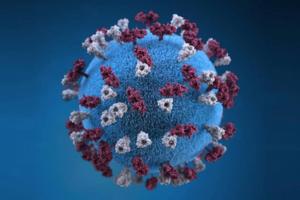
Cut vaccine mandates? SC lawmakers take cue from Trump administration in 2026
COLUMBIA, S.C. — As South Carolina faces climbing measles cases, a lawmaker wants to ban all vaccine mandates for children under two-years-old.
The bill is one of several proposed policies for 2026 that reflect the priorities of President Donald Trump and his administration.
Some vaccines, including measles, are mandatory for children ...Read more

New Trump administration proposals could further reduce gender-affirming care for minors in Illinois
CHICAGO — In a move that could further reduce gender-affirming care for minors in Illinois, the federal government is proposing rules that would strip Medicare and Medicaid funding from hospitals that provide such services.
The administration of President Donald Trump has been threatening since early this year to block federal funding for ...Read more

GOP won't allow vote on Obamacare premium relief as credits near end. Now what?
WASHINGTON — With no hope of preventing Obamacare health insurance premium costs from soaring in two weeks, Democrats and a few Republicans turned to ways to stop the increases when Congress returns in January.
But getting any such action next month, or as long as Republicans control Congress, appears difficult.
The Republican-led House ...Read more

Children's Hospital of Philadelphia faces threat as Trump administration proposes rules to stop gender-affirming care for minors
PHILADELPHIA — President Donald Trump’s administration proposed a sweeping set of rules Thursday designed to prevent hospitals from providing gender-affirming care to minors, a move that could have consequential implications for the Children’s Hospital of Philadelphia
CHOP runs one of the nation’s largest clinics providing medical care ...Read more

Trump administration, Congress move to cut off transgender care for children
The Trump administration and House Republicans advanced measures this week to end gender-affirming care for transgender children and some young adults, drawing outrage and resistance from LGBTQ+ advocacy organizations, families with transgender kids, medical providers and some of California's liberal leaders.
The latest efforts — which seek ...Read more

Trump targets hospitals to restrict transgender kids' care
Hospitals that offer gender-affirming care to minors will be forced to forgo federal insurance funding under a rule proposed by the Centers for Medicare and Medicaid Services, part of an effort by the Trump administration to curtail the practice.
The Department of Health and Human Services said Thursday it will roll out a cross-agency plan to ...Read more

Worried about health insurance costs? There may be cheaper options -- but with trade-offs
For the millions of Americans who buy Affordable Care Act insurance, there’s still time left to enroll for 2026. But premium increases and the expiration of enhanced tax subsidies have led to larger-than-expected costs.
Concerned shoppers, wondering if there’s anything they can do, are consulting insurance brokers or talking to ...Read more
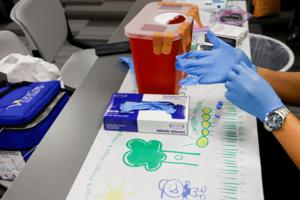
Florida vaccine debate: explaining chickenpox, Hep B, Hib and pneumococcus shots
MIAMI – Florida’s surgeon general wants to do away with all state vaccine mandates. But the first step in his plan targets four specific vaccines.
Earlier this month, the Department of Health had a meeting during which officials unveiled a proposal to drop the requirement for the chickenpox; the Hepatitis B; the Haemophilus influenzae type ...Read more
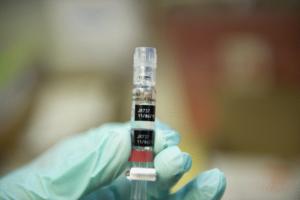
Vaccine panel's hepatitis B vote signals further turbulence for immunization policy, public trust
When Su Wang was in medical school, she donated blood. That’s when she learned she was infected with hepatitis B, a virus that attacks the liver and can lead to cancer and death decades later.
“I was 18, healthy, in college,” she said. “And suddenly I had a chronic illness I didn’t even know about.”
Born in Florida in 1975, Wang ...Read more
Popular Stories
- Commentary: US needs immigrants to sustain the health care workforce
- Don’t get caught by the Medicare tax torpedo: A retirement expert’s tips to steer clear
- Ask the Pediatrician: Medication safety tips for families
- Flu season could get a lot worse in the coming weeks, experts say
- The Minnesota mom who ignited RFK's vaccine concerns and today's MAHA movement








